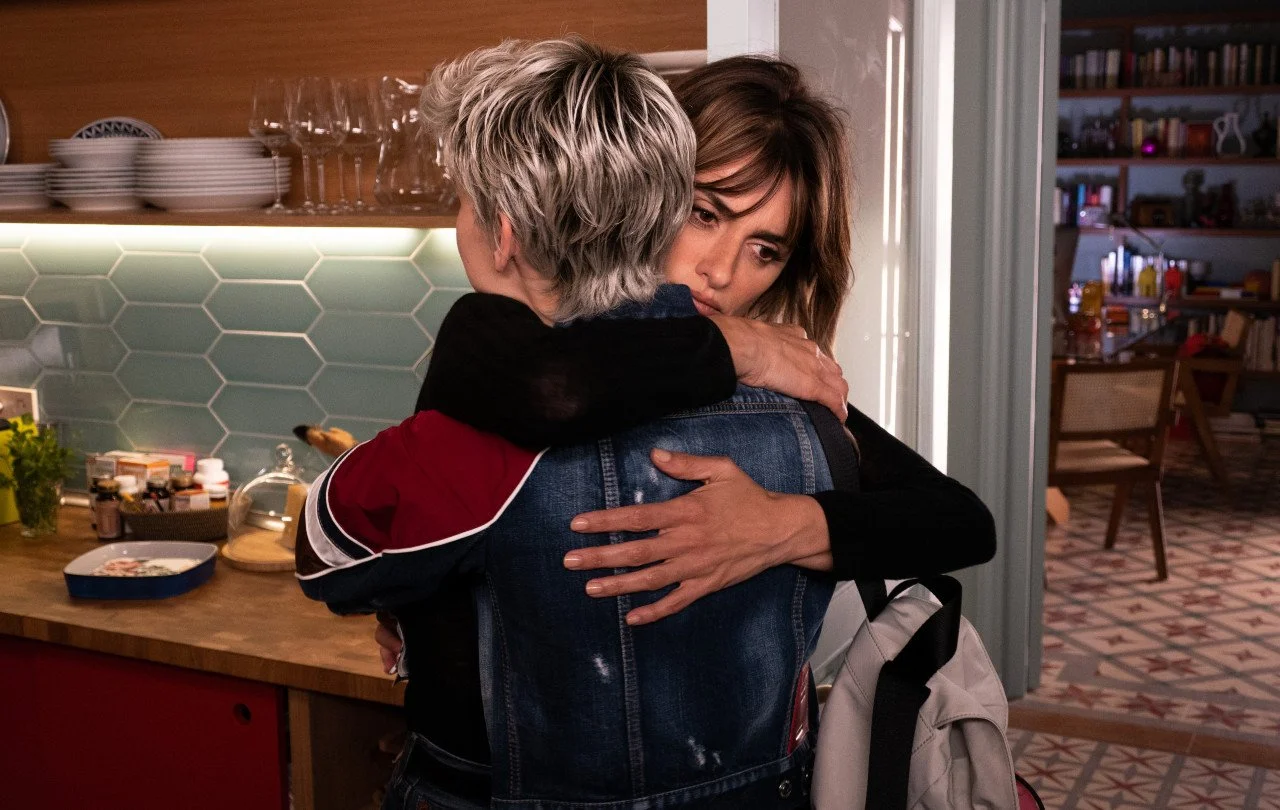Parallel Mothers: Pedro Almodóvar’s Latest Exalts Penélope Cruz, Ponders Post-Franco Spain
By Karen Gordon
Rating: A
On the surface, Parallel Mothers is an engaging melodrama centred around a fabulous performance by Penélope Cruz. But, as is typical of Pedro Almodóvar’s movies, this easygoing, entertaining film is deeply layered, dealing with issues of personal morality and family ties, mixed with a reminder of Spain’s dark and not-so-distant fascist past.
Cruz stars as Janis, a successful Madrid-based photographer. She turns to one of her subjects, a forensic anthropologist named Arturo (Israel Elejalde), for advice on something very personal to her. She and other members of her family’s village know the location of a mass grave from the Franco era. The relatives and ancestors want help properly excavating it. Arturo agrees to help. In the process, their relationship gets personal, and Janis gets pregnant.
In the hospital, she’s put in a room with a pregnant teenager, Ana (Milena Smit). Both will raise their babies as single mothers, and the two bond. They exchange phone numbers and agree to stay in touch.
Janis names her daughter Cecilia, to honour her grandmother, and gets on with life as a single mother. She has plenty of support, and that includes her close friend, who is also her major client (Rossy De Palma).
Janis stays in touch with Ana, who has also taken to motherhood despite a rather fraught relationship with Teresa (Aitana Sánchez-Gijón), an actress in her late forties whose stage career has suddenly taken off. She has to go on the road, leaving Ana at home with the baby and a helper.
For a time, the movie leaves the plans to excavate the grave behind in favour of the story of the two mothers, their friendship, and their dramas.
It’s a rich stew. Almodóvar has a knack for making his movies feel like real life with points of humour and melodrama within a dramatic story. His characters are so well drawn and so interesting that I come away feeling like I’ve spent a few hours with friends.
There’s an unselfconscious sensuality to his films, with his famous colour palate, and love of the colour red. There is a scene in the film where Janis teaches Ana how to make a potato frittata that is so visceral that after watching the film, I made the same meal for dinner.
His movies are approachable and enjoyable, but there’s always real complexity that sneaks up on you. In the case of Parallel Mothers, he puts two seemingly disparate stories together, and leaves it to you to pull the threads together.
To make it work, he has a terrific cast down to the smallest role. But the film really rests on the work of Cruz. This is the eighth movie they’ve made together, and their creative synergy is extraordinary.
There are so many different ideas in the movie that the success of film really hinges on her ability to link them together. For her work here, she won best actress at the Venice Film Festival where the film had its world premiere. She has also been nominated for a best actress Oscar.
It’s also worth noting that the organization that Arturo is connected to in the film, the Association for the Recovery of Historical Memories, is a real organization in Spain, dedicated to excavating mass graves where victims of Franco’s terror were dumped, and recording the oral testimonies of those who are still alive, and their ancestors.
Once again, the ideas in Parallel Mothers are easy to understand, but hard to shake. Almodóvar’s magic is once again fully evident.
Parallel Mothers. Written and directed by Directed by Pedro Almodóvar. Starring Penélope Cruz, Milena Smit, and Israel Elejalde. Opens February 11 in Toronto (Varsity), Vancouver (Fifth Avenue), Winnipeg, Edmonton and Montreal.

